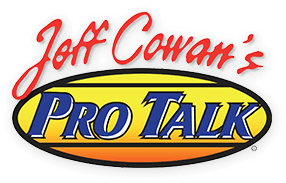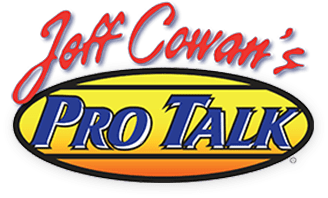Service Advisors Fighting Coronavirus!
Service Advisors Fighting Coronavirus! Although there have been no known reported cases of a service advisor contracting the coronavirus, every service advisor will likely fight the financial effects this virus is inflicting on the mindset of the consumer. With the stock market teeter-tottering, the international banking community bracing itself, and our federal reserve taking action, the average consumer will be crudely reminded of 2008 with absolute clarity.
Financial uncertainty forces consumers to spend money ONLY where necessary. They will likely shut down advisors on the suggestion of needed services and repairs before the advisor gets the opportunity to make the presentation of those services and repairs. In sales, we know too well, if you can’t present your products, you can’t ask for the sale. In sales, you have to be ready and prepared to, at the very least, put yourself in a position to make your presentation.
Many times, even when there is zero threat of financial collapse, advisors will begin the walk-around at the initial check-in. They will identify the needs based on mileage or what they are physically observing and before they can get the first word out, the customer will state something like:
Customer: “Oh, the vehicle probably needs a few things, but just do what I came in for”.
On the afternoon callbacks, the advisor will inform the customer of the findings regarding their primary concern. When they start to discuss other additional needs the technician has found, the customer again shuts them down in the same manner.
Customer: “Just do what I came in for and I will address the other stuff at another time.”
Again, the advisor is blocked and now has to make a decision. Do they push through, present, and possibly risk upsetting the customer? Or do they let it go, note it on the repair order, and leave money on the table? Unfortunately, most advisors do the latter. They are totally unprepared for the situation. They make a note on the order and move to the next customer.When this happens, everyone loses. The customer loses because they do not know the true condition of their vehicle. The customer leaves unaware that if repairs and maintenance are not done in a timely way, the vehicle will present greater problems, needing significant repairs, costing more money down the road. The service department loses because they missed a sale. The tech department loses because they wasted time finding something that never had a chance to be sold. The advisors lose the sale. And worst of all, the dealership loses because now it is at risk of losing a customer and the potential for future vehicle sales. All this, because the advisor was not prepared and failed to make the presentation.
How do you ensure that your advisors get the opportunity to present all findings 100% of the time? You prepare them by training them to be ready for the situations that happen hundreds of times every day and will be happening even more because of the feared pandemic.
In my forthcoming book, “The Service Advisors Bible for Closing Sales and Handling Objections”, I discuss how closing is not always about asking for money. Sometimes you have to close the customer on simply allowing you to present your product and services. The core objective of the advisor position is to inform and educate the customer at every visit so that they fully understand the true condition of their vehicle.The advisor cannot accomplish this unless they make a presentation. This is not about pushing. It is not about twisting arms or creating high pressure. And it certainly is never about selling the customer something they don’t need. That is theft and theft will get you put in jail. It is however, very much about making sure the customer understands the condition of their vehicle.
Although I have a multitude of ways to handle every closing situation, let’s focus on two of the most likely objections consumers are going to make in the event that this virus causes a downturn or causes the fear of a downturn in the economy.
Word-track #1
Customer: “Just do what I came in for. I know there may be other things the vehicle needs, but there is a bad economy and I need to hang on to my money. ”
Advisor: “Mr./Ms. Customer, I know it’s a tough economy. It has affected me, my family, my neighbors, and my friends. In times like these, everyone looks for ways to conserve, change spending habits, and save. While many things need to be put on hold, it is never wise to make your vehicle and its needs one of those things. Your vehicle is indispensable. Having dependable and reliable transportation is paramount to everything we do. It is your vehicle that gets you to work and makes everything else possible. This fact is even more critical in a challenging economy. ”
Customer: “It sounds like you have something to tell me about my vehicle. What is it?”
What has just happened is that the advisor, with sound reasoning, closed the customer on allowing them to make a presentation. The advisor then makes the presentation. If the customer says yes, write it up! You just got a sale. If the customer says no, nothing lost. Note on the repair order that the information was presented and the customer declined. Get the customer’s initials. You may not have gotten the sale, but at least the customer knows the condition of the vehicle. You are now covered.
Word-track #2
Customer: “I would love to get everything the car needs, but I have to save my money right now. ”
Advisor: “The best way to save money in times like these is to ensure that you are always capable of getting to the place where your money is made. The only way to guarantee this is to keep your vehicle properly and fully maintained, doing any and all needed repairs, no matter how large or small, as soon as possible. ”
Customer: “You know, I do have to get back and forth to work. What is it that I need?”
Again, the advisor has closed the customer on the idea of allowing them to make a presentation. And just as in word-track #1, the advisor stands a better chance of getting the sale, because in both situations, the customer has now asked for the presentation. This means they are more open to listening and to say yes. It is no longer seen as the advisor being pushy. Now the advisor is educating the customer, which is what advisors are paid to do.In my training, I explain all of the psychology behind these two word-tracks and why they have an extremely high success rate. Ultimately, customers want a vehicle that preforms without fail and they will do whatever it takes to ensure that end IF the advisor is willing to show enough passion, empathy, and care toward the customer. These word-tracks accomplish this objective.
Just like in the 2008 recession, these situations are going to arise and have already started happening. That is not the question. The question is whether or not you and your advisors are prepared to handle these situations. Can you become the treatment that quells the panic and diverts the coronavirus financial mindset? As with the virus, you will either become the victim of it or you will do what is necessary to prevent it from infecting you and your business.To learn how you can take your sales to the next level, call us at 800-248-2931 or complete our online contact form.









